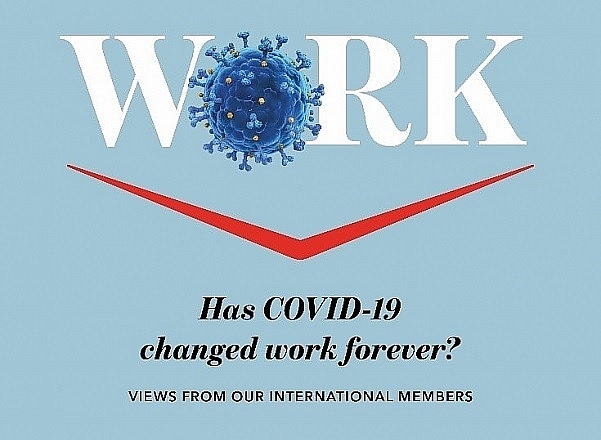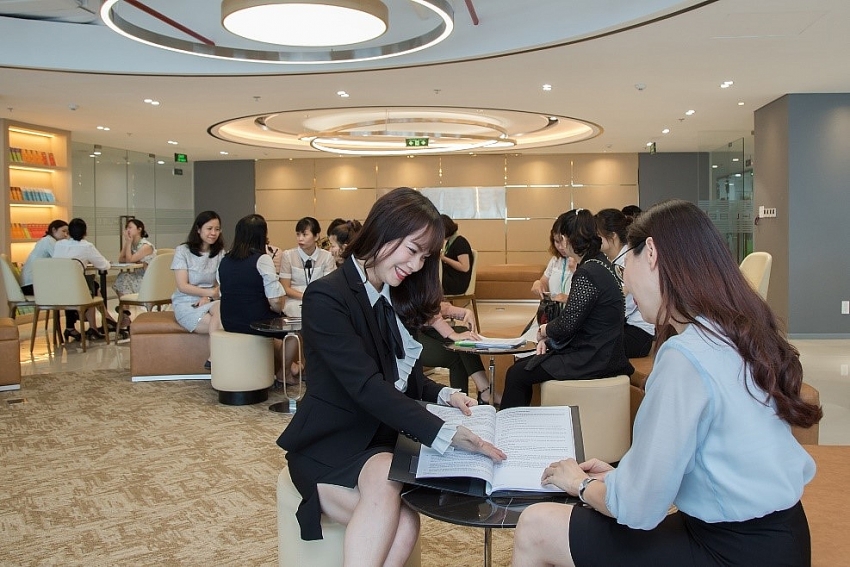ICAEW: Businesses expect different working life post-pandemic
The impact of the pandemic has been felt across employees’ mental health, talent management, building relationships, and operational challenges.
 |
A far greater reliance on remote work during the pandemic, and the risks of staff feeling isolated, meant support for employee mental health and wellbeing was more important than before, the report said.
Just under half of the respondents said the pandemic had had a negative impact on mental health, while two-fifths believed organisations found it difficult to keep up staff morale. Flexibility around working hours and having a greater awareness of colleagues’ personal obligations were key to supporting mental health.
Nevertheless, most respondents said the shift to remote working was a positive experience, as well as the acceleration in technology that came with it.
 |
| Businesses around the world expect working life to be different in the future, compared to pre-pandemic times |
Developing talent
Half of those surveyed said bringing on board new employees had been difficult because aspects of "on-boarding" new hires was more challenging when done remotely. As a result, survey respondents said they wanted to see a return to in-person interviews and induction processes.
In a climate where new and young employees had missed out on the benefit of face-to-face interactions, ICAEW said organisations must actively pursue mentoring, guidance, and formal training to help build their practical experience.
Human interaction
The report also examined the value that face-to-face interactions can add to organisations. Half of survey respondents said that the pandemic posed challenges when engaging new clients and building relations, while just under half thought it was easy to maintain corporate culture.
The pandemic has underlined that organisations were ultimately dependent on people interacting, ICAEW said, and suggested that remote working could bring new dynamics to employee interaction. Remote working could change the perception of hierarchy, break down cross-country barriers, and facilitate recruitment, the report added.
Business challenges
Three-quarters of respondents said their top operational challenge was forecasting, while two in three said the pandemic made it difficult to understand what was going on in their business.
Successful organisations must be aware of what is going on in their business, irrespective of whether employees are remote or office-based, the report said.
| Successful organisations must be aware of what is going on in their business, irrespective of whether employees are remote or office-based, the report said. |
Mark Protherough, ICAEW executive director, Learning and Professional Development, said: “It is clear that the coronavirus pandemic has had a very extensive impact on working practices across the globe and that the changes are likely to last for some time to come."
“Our members have told us there have been positive shifts in working patterns over the past year, creating new opportunities and accelerating shifts in technology," he added. "But there have also been significant downsides, most notably the reduction in face-to-face contact, which has had a negative impact on day-to-day operations, recruitment, employee wellbeing, and mental health."
“Chartered accountants sit at the heart of business so they are well-placed to see the bigger picture as economies rebuild. We hope these findings will inform and guide organisations all over the world as we move into a period of recovery.”
Mark Billington, ICAEW regional director, Greater China and Southeast Asia, said: “As economies gradually open up and people start to return to the office, businesses need to pay attention to the long-term impact of the pandemic on their employees and adapt to new ways of working,”
"Whether it is a return into physical workspaces or a hybrid format, organisations should take this time to identify post-pandemic opportunities and challenges that come with these changes and prepare to respond accordingly,” he added. “Above all, the experience of 2020 has shown that, at the end of the day, organisations are all about people – and the success and well-being of both, in 2021 and beyond, are closely intertwined.”
What the stars mean:
★ Poor ★ ★ Promising ★★★ Good ★★★★ Very good ★★★★★ Exceptional
Related Contents
Latest News
More News
- State corporations poised to drive 2026 growth (February 03, 2026 | 13:58)
- Why high-tech talent will define Vietnam’s growth (February 02, 2026 | 10:47)
- FMCG resilience amid varying storms (February 02, 2026 | 10:00)
- Customs reforms strengthen business confidence, support trade growth (February 01, 2026 | 08:20)
- Vietnam and US to launch sixth trade negotiation round (January 30, 2026 | 15:19)
- Digital publishing emerges as key growth driver in Vietnam (January 30, 2026 | 10:59)
- EVN signs key contract for Tri An hydropower expansion (January 30, 2026 | 10:57)
- Vietnam to lead trade growth in ASEAN (January 29, 2026 | 15:08)
- Carlsberg Vietnam delivers Lunar New Year support in central region (January 28, 2026 | 17:19)
- TikTok penalised $35,000 in Vietnam for consumer protection violations (January 28, 2026 | 17:15)

 Tag:
Tag:


























 Mobile Version
Mobile Version